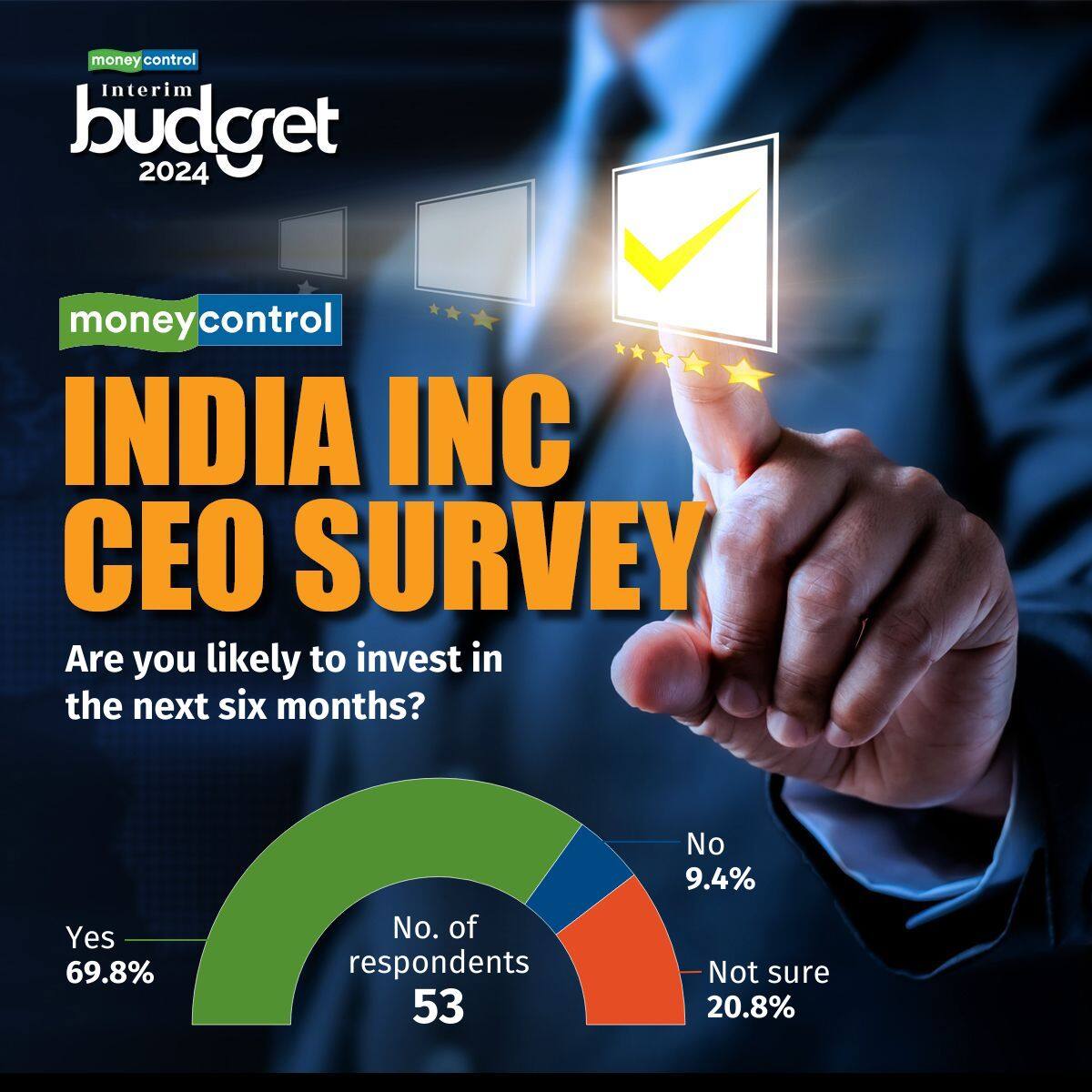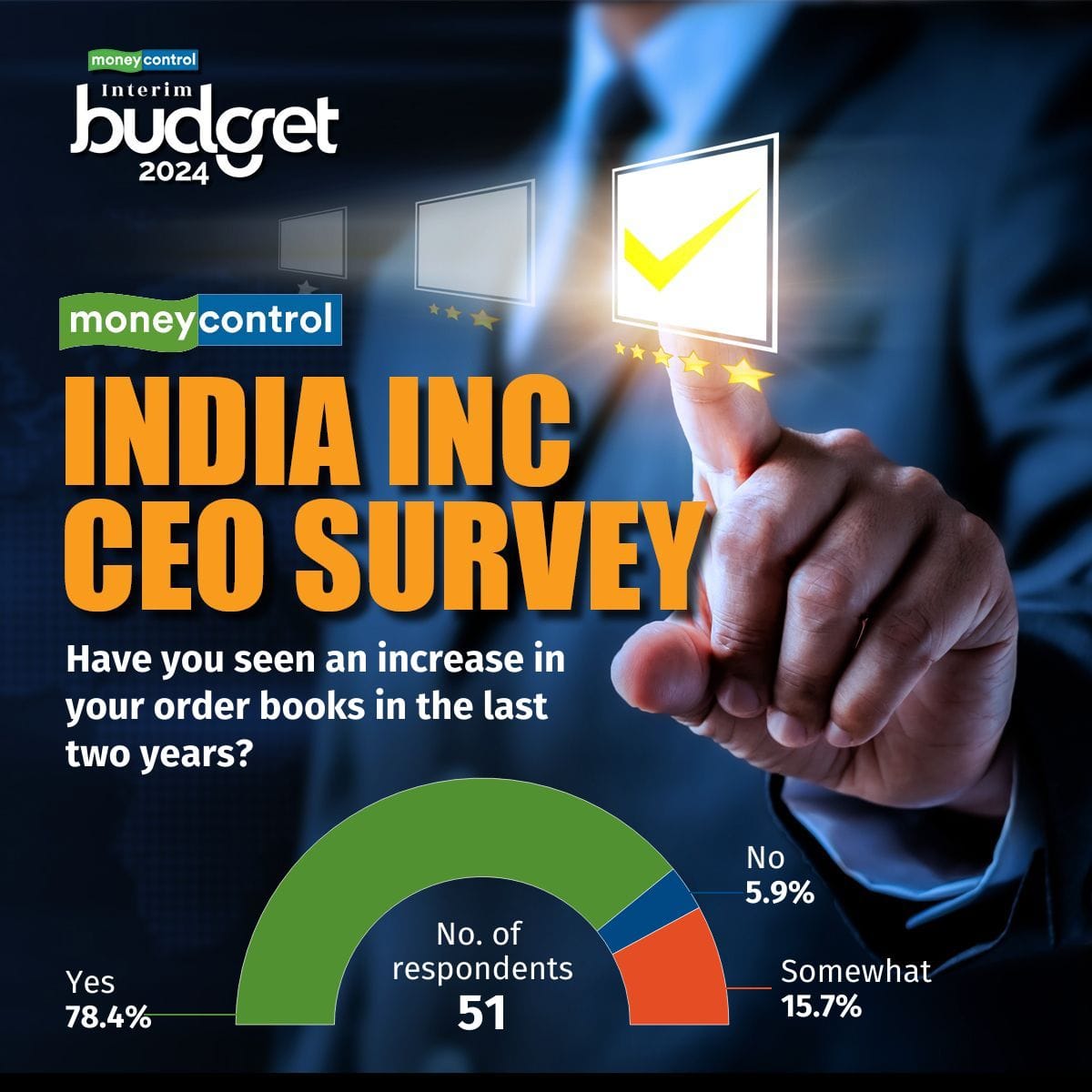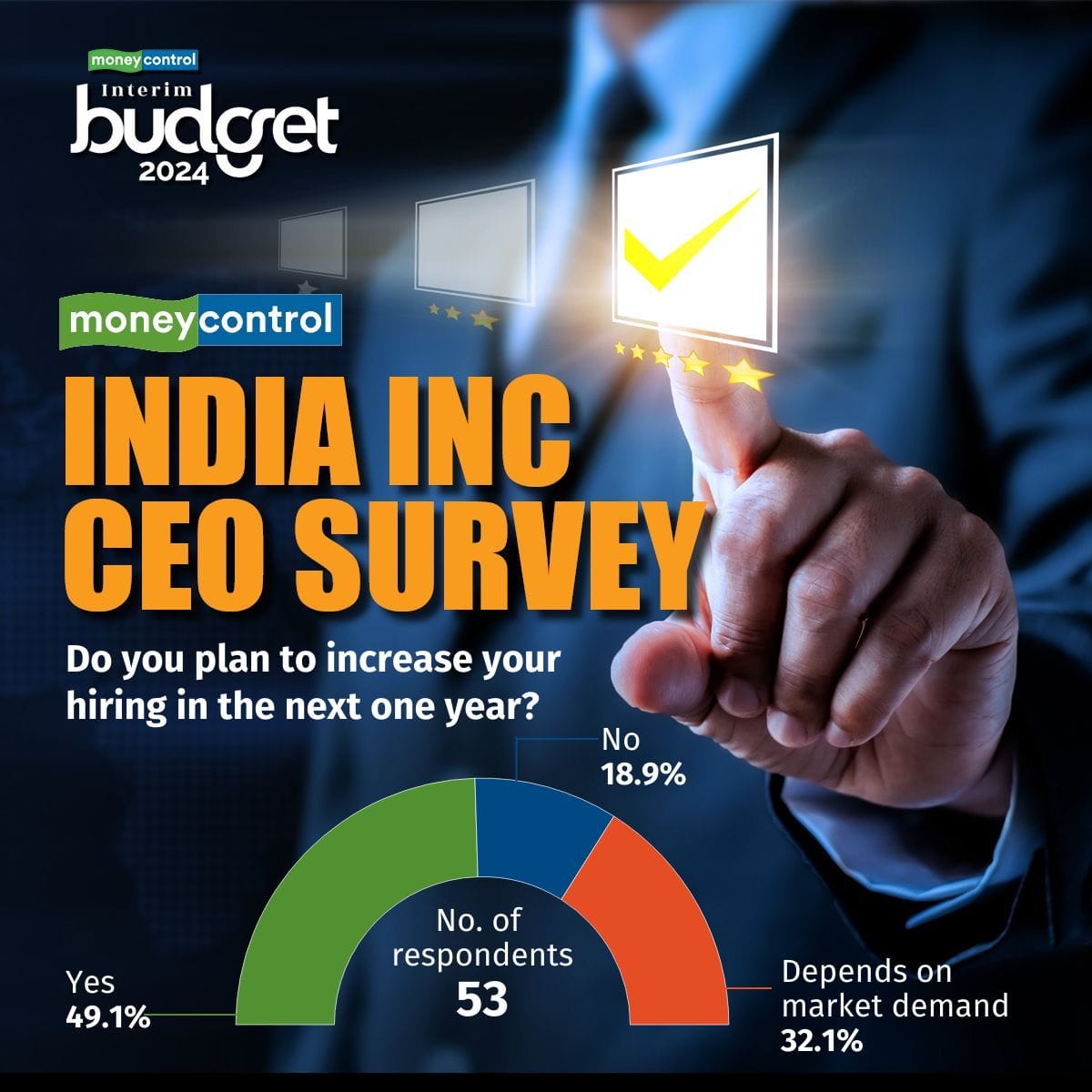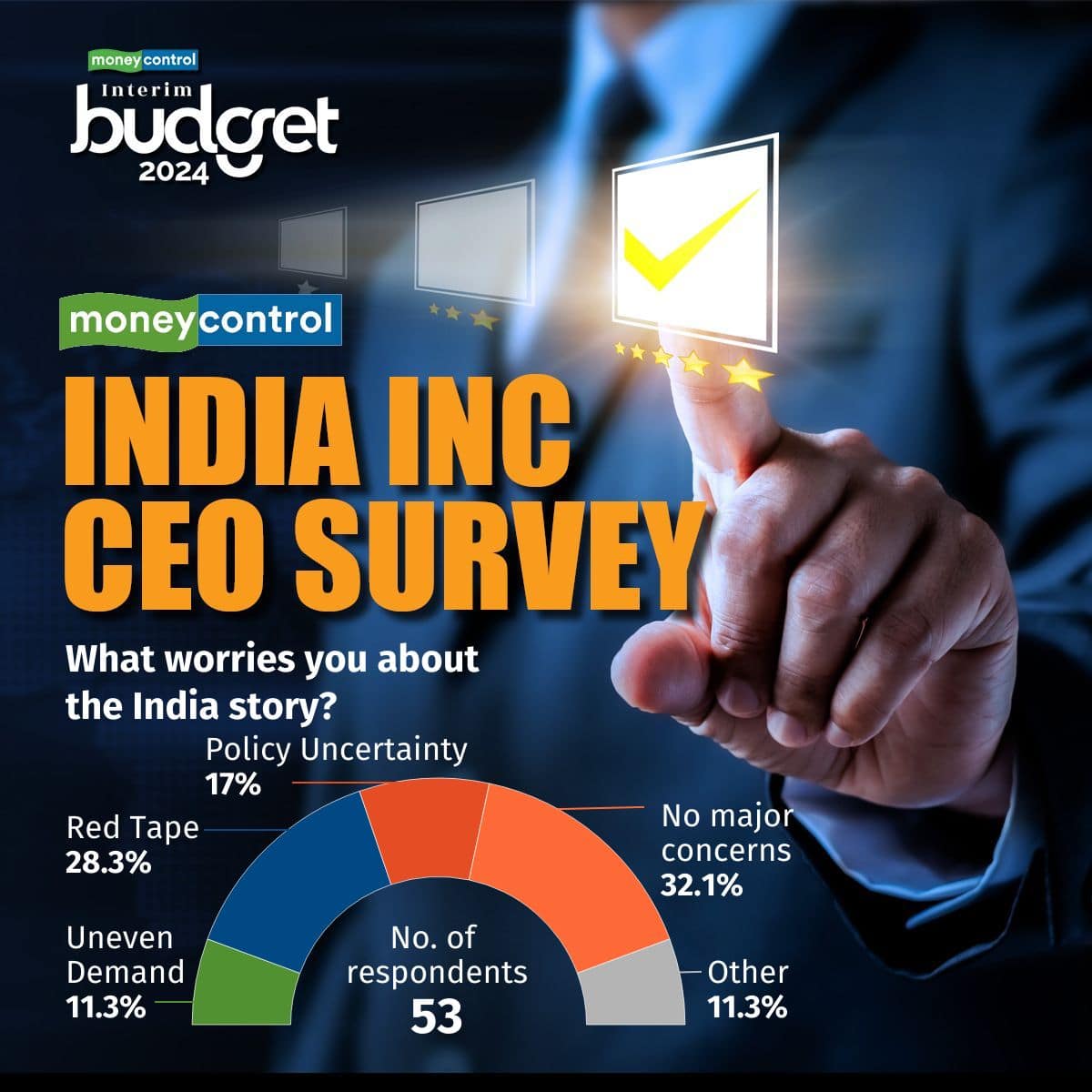
India's top business leaders expressed optimism about the prospects of the economy and sought government support to ensure regulatory stability and reduced bureaucratic hurdles, a survey of chief executive officers showed.
An overwhelming majority of the 53 respondents of the survey described the business sentiment in the country as either 'very optimistic' or 'cautiously optimistic'.
Also Read: Govt pegs FY24 GDP growth at 7.3% in another upside surprise

The CEOs surveyed emphasised the need for regulatory stability and a reduction in bureaucratic red tape, advocating the government to "step aside and let markets flourish" ahead of the presentation of the interim budget for 2024-25.
Bureaucratic red tape has long acted as a drag on India's economy, stifling innovation and impeding business growth. While the government, in recent years, has acted to make it easier to do business, further reduction in such administrative obstacles may help unleash the 'animal spirits' of Indian entrepreneurs and investors, fostering economic growth and prosperity.
"The top priority to boost economic growth is to create a conducive environment for manufacturing in India and to make it the single-largest alternative to China," a CEO said. The survey ensured anonymity for respondents to encourage them to express their views freely.
Investment plans
Over the past few years, the government has looked to drive growth and attract private investments by boosting capital expenditure on infrastructure projects. The survey results show the government's efforts may be yielding results, with 70 percent of CEOs saying their companies plan to invest in the next six months.

"Encouraging private investment is pivotal to our economic resurgence," another CEO said. "There is an urgent need to create an enabling environment by simplifying regulations and providing incentives, thereby fostering innovation and job creation across various sectors."
Gross fixed capital formation—a proxy for investments— is estimated to grow by 10.3 percent in the current fiscal year after an 11.4 percent increase in the previous year, according to the latest data.
The private sector's plans to invest come on the back of improving demand, with 94 percent of CEOs saying the order books of their companies had either increased or 'somewhat increased' in the past two years.

Interestingly, most CEOs plan to proceed with investments in the next six months even though around 60 percent of those surveyed see no reduction in interest rates.
The Reserve Bank of India, which is mandated to keep headline retail inflation at 4 percent with a tolerance range of 2-6 percent, has left the repo rate unchanged at 6.5 percent since February 2023 after raising it by 250 basis points in 2022-23 to curb price rises.
The central bank expects consumer price index (CPI) inflation will cool to 4 percent in July-September 2024, and then accelerate to 4.7 percent in the December quarter. Inflation averaged 5.4 percent in the December quarter of last year.

When it comes to hiring, CEOs are slightly more cautious than their investment plans, with 49 percent responding positively when asked if they were looking to increase hiring significantly. Further, 32 percent of CEOs said their hiring plans were dependent on market conditions, with 19 percent having a muted outlook on new staff additions.
Cause for concern?
When it comes to the risks, they primarily fall into two categories: domestic and global.
On the domestic front, more than a third of the surveyed CEOs think there are no major concerns to worry about. However, 28 percent of decision-makers see bureaucratic red tape as a barrier to business, with an additional 17 percent identifying policy uncertainty as an issue. In addition, 11 percent of CEOs are concerned by the uneven consumption demand.

According to one of the CEOs surveyed, the government should stimulate consumer demand across sectors and support start-ups to help generate more jobs and boost consumption.
In terms of the global situation, the sentiment is more pessimistic, with 36 percent of CEOs somewhat concerned by the global economic uncertainty and another 36 percent keeping a close watch on developments. Meanwhile, 13 percent of respondents are not at all concerned by global developments, although 15 percent are 'highly concerned'.
Also Read: World Bank says global economy surprisingly resilient, but outlook 'dark'
And despite the surge in COVID cases, only 2 percent of CEOs identified the situation as "very worrying".
Overall, the survey paints an optimistic picture, reinforcing the consensus that India is a bright spot in an otherwise uncertain world.
Discover the latest Business News, Sensex, and Nifty updates. Obtain Personal Finance insights, tax queries, and expert opinions on Moneycontrol or download the Moneycontrol App to stay updated!